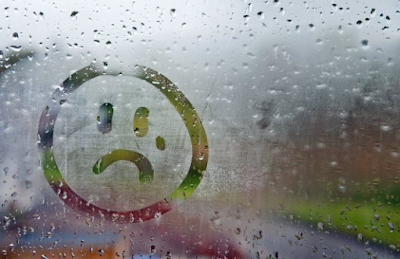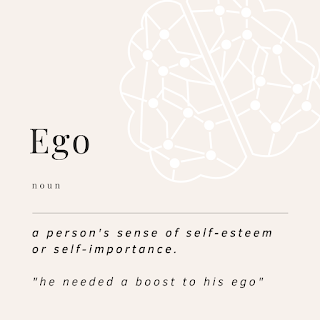LONELINESS AND RECOVERY
WHAT IS LONELINESS?
Loneliness is defined as ‘a subjective feeling about the gap between a person’s desired levels of social contact and their actual level of social contact.’
The issue with subjective emotions is that everyone perceives them differently, and loneliness is no different. Someone can be surrounded by people or appear on the outside to have connections and a social life, but still feel lonely, or lacking connection. On the flip side, someone may appear to be isolated but are content with solitude and minimal human contact. We are all wonderfully varied and not one rule fits all.
LONELINESS VS SOLITUDE
Loneliness is not to be confused with solitude. Where feeling lonely is an emotion, being alone is a state of being. Many people (like myself, especially in my recovery) may choose to have a small number of connections, and enjoy some solitude to relax and reflect on their day.
"Being alone is actually just a state; it means that you are not with other people. Loneliness is an emotion, which describes a feeling of sadness attributed to not having connection."
Sarah Adler, PsyD
As a newly-discovered introvert, I am someone who genuinely enjoys spending time in isolation, but this is by choice and only to a point. I see being alone as a way to decompress from my busy life and to reconnect with myself and my recovery. I enjoy listening to podcasts and reading, and often I do nothing at all! Simply ‘being’ is a way for me to find peace - solace is necessary for me to function in the world.
Loneliness is a different thing altogether and not something I or anyone else would choose to feel. I have often felt very lonely when not actually alone, such as in a relationship where I felt that my partner at the time didn’t really see me or care much about my needs. When I was in my addiction, I often felt lonely as I was disconnected from the world around me, even though on paper I had friends-a-plenty.
“People think that being alone makes you lonely, but I don’t think that’s true.
Being surrounded by the wrong people is the loneliest thing in the world.”
Kim Culbertson
There are not many things worse than feeling alone when in a room surrounded by people.
LONELINESS AND MENTAL HEALTH
While loneliness itself is not a mental health problem, the two are strongly linked and cyclical in nature. Having a mental health condition (and I include addiction in this) can make you more prone to loneliness, which in turn can impact your mental health and so on..
The effects of loneliness on mental health can include the following:
Alcohol and drug misuse
Altered brain function
Alzheimer's disease progression
Antisocial behaviour
Decreased memory and learning
Depression and suicide
Increased stress levels
Poor decision-making
There is also a difference between situational loneliness and chronic loneliness, and the effect they can have on our mental health.
I (and probably a few of you reading this) experienced transient loneliness in my early sobriety as I didn't have many sober friends. We were also right in the middle of a series of lockdowns. Fun!
Although this wasn’t a particularly pleasant time, I soon recovered when I made new friends in the fellowship. I did tick a few of the boxes on the list, including depression and low motivation, but these soon dissipated as I formed new connections and came out of my shell.
Chronic loneliness can have a long term impact on someone's quality of life, occurring when feelings of loneliness and uncomfortable social isolation go on for a long period of time. It’s characterised by constant and unrelenting feelings of being alone, separated or divided from others. It can also be accompanied by deeply rooted feelings of inadequacy, poor self-esteem, and self-loathing. This can compound the already potentially precarious mental health that many people in recovery experience.
LONELINESS IN RECOVERY
Experiencing some level of loneliness in recovery is to be expected, as we find social circles from our addiction are stripped away. Before rehab, many of your closest friends and acquaintances probably used too. In recovery, those relationships are a slippery slope that will likely lead you back to addiction. It’s best to keep your distance.
Another cause of loneliness post-treatment is that, relative to spending most of your time in treatment around other people - be that your peers in recovery or staff members and the therapy team - any amount of time on your own afterwards can feel rather stark in contrast.
Here are some further insights into what might be responsible for loneliness and isolation in recovery.
Damaged relationships
You may have hurt some people you love while you were under the influence of drugs or alcohol. These relationships will take time to mend as you work to earn trust back in recovery. Be consistent in showing that you’re dependable while giving them the space to respond in their own time. Sadly, we cannot control how long that might take, but by taking action, we show we are on a new path in the right direction.
Single status
In the first year or so of recovery, dating relationships can feel exciting but end up being dangerous. From the temptation to develop co-dependent relationships to the likelihood of losing sight of your own healing, dating just isn’t a good idea during this time. After not having a program, this is by far the biggest cause of people finding themselves off-track in their recovery, from my observation.
New place in life
Many people choose to travel for treatment and may even relocate in recovery as a means of intentionally starting over. The age-old ‘geographical’.
Others may be back home but in a new state of mind, mentally and emotionally. It can make you feel lonely while in a room with people - recovery changes us for the better but sometimes it can take a period of readjusting when you leave treatment.
It is important to recognise that these feelings will pass as we renegotiate our social lives and become reacquainted with our own company. Keeping with one of the key tenets of recovery, acceptance of our feelings and acknowledging that although we might feel emotions that are uncomfortable, ultimately all things are temporary. This does go a long way in maintaining a bit of perspective. Simply naming a feeling can take the power out of it - “I am feeling lonely right now, and it sucks, but it is only a feeling and it will eventually pass”
PRACTICAL ADVICE
I sometimes feel lonely, and if I take a moment to really think about why, it almost always comes back to H.A.L.T. I am either Hungry, Angry, Lonely or Tired (or a combination of these things!) A check-in about what I need in that moment, followed by some self compassion and self care help me move through difficult times and keep me slowly but surely moving in the right direction.
A more recent but very accessible tool I have added to my recovery box is a notebook and a pen - Set a timer for 10 minutes and write how you are feeling down on paper.
Here are some suggestions for prompts that I often use:
What is worrying me that I need to let go?
Who has annoyed me today - what is my part to play?
What has been good about today?
What am I grateful for?
How can I make tomorrow better?
It doesn't have to look good or even be written in full sentences - bullet points work better for some people. Just taking 10 minutes out to offload will make you feel at least a little better and less alone with difficult emotions.
AWARENESS
Mental Health Foundation’s Mental Health Awareness Week is running from 9-15 May and the theme is that of loneliness. They have provided a really helpful list of practical things we can all do to help alleviate loneliness when it does become an issue in our lives.
Here is that list, with some of my own reflections on how I use these tools. Perhaps you can take 10 minutes and write down a few sentences (or bullet points) for each?
"What lovely surprise to discover how unlonely
being alone can be"
Ellen Burstyn
Try to do some enjoyable things that keep you busy
Although I have to manage my energy levels due to a chronic health condition, I do find that keeping busy when I can helps my self-worth and confidence. As with many things in life, it’s about finding balance. As I previously mentioned, spending some time in solitude is a good thing for my recovery, but if I am afforded too much time to not do much, my own head gets in the way. I can easily start to spiral into ‘victim’ mode and feel quite lonely (even if I have lots of friends!). I actually quite enjoy housework (I know), so I will happily spend a couple of hours pottering about with my headphones on.
Try to do things that stimulate your mind
This doesn’t have to be anything too strenuous and can be as simple as getting around to that book you have been meaning to read or doing a crossword or Sudoku. I enjoy writing, and will set a timer for 20 minutes and write about anything that comes to mind. Again, it doesn't have to be a masterpiece but is a great way to get away from navel-gazing (oh, woe is me) and get your neurons firing.
Thank about doing a physical activity
Exercise is obviously important on many levels, both for our recovery and general health. It is however, important to take into consideration any limitations that you might have. We are not all able-bodied and I know for myself that I can’t exercise as intensely or regularly as others might. Having said that, many of us can find some level of physical activity that is manageable for us. I can walk well enough for an hour or so before I start to struggle so I try to incorporate this into my daily routine. If I am having a bad pain day, I am not too hard on myself but do make a point of including physical activity on the day’s I am able.
Anyway, you get the jist. Here are some more suggestions. How can you utilise these to improve your emotional wellbeing?
Try to engage with the people you meet in daily life
Find people that ‘get you’
Spend time with pets
Try to use social media in a positive way
Talking therapies can help
RELAPSE PREVENTION
Above all, pay close attention to your emotional well-being particularly in early recovery or during times where you are more isolated, as loneliness can quickly lead to relapse if you’re not careful. The relapse process often begins long before you actually take a drink or drug. Feeling isolated and alone in recovery can make you feel so miserable you’d do anything for release — even if it means justifying drug and alcohol use.
Here are some warning signs of relapse to keep an eye out for, in yourself and in others.
Glamorising past drug or alcohol use
A false sense of control over use
Hanging around old people and places associated with past use
Sudden changes in behaviour
Isolation
Not going to meetings
Not engaging in sober fun
Doubting the recovery process
Feeling more stressed than normal
Experiencing depression
Relapse is preventable if it is caught early, and anyone can help bring someone out of the darkness of addiction and back into the light of recovery. People often feel a misplaced sense of shame or guilt when they relapse at any stage and therefore refuse to ask for help.. The best thing to do if you are thinking about using is to reach out for help either to a sponsor, a sober friend, mental health professional or to your treatment team. This way, you can get the help you need, and relapse prevention can be implemented before you physically relapse. Relapse is preventable; don’t wait until physical relapse occurs. There is no shame in it either - I believe that relapse or times of difficulty in recovery are part of the process for many, and it does not mean you will not succeed. Have faith and reach out.
'Our greatest glory is not in never failing, but rising up every time we fail'Ralph Waldo Emerson
I hope this article has helped you gain some insight into the issue of loneliness, and that you have some additional tools to add to your recovery utility belt!
You might also like my blog Stress in Recovery: Relapse Prevention
As ever, thanks for reading, and feel free to feed back with any ideas or thoughts on this topic or anything else that you would like to share, at celestialrecovery@gmail.com
Celeste is in recovery from addiction and is passionate about exploring ways we can be accountable for ourselves, while practising radical self-compassion. They have embraced the spiritual aspect of their recovery, and finds peace in simple pleasures.
Further Support & Information
Samaritans: 116 123, or email jo@samaritans.org
Mental Health Awareness Week (Mental Health UK)
Campaign Against Living Miserably (CALM)—call 0800 585858 or message the CALM webchat service
Shout—text ‘Shout’ to 85258.
Tips to Manage Loneliness (Mind)




Comments
Post a Comment